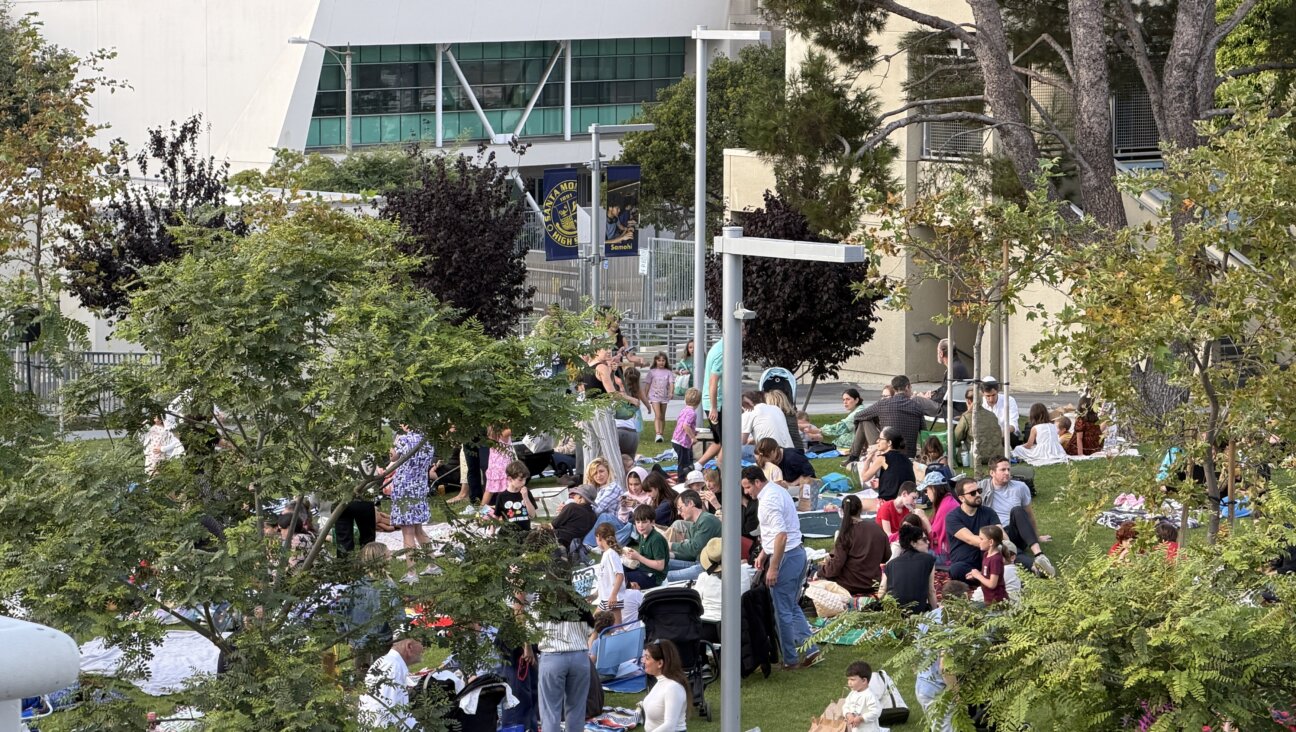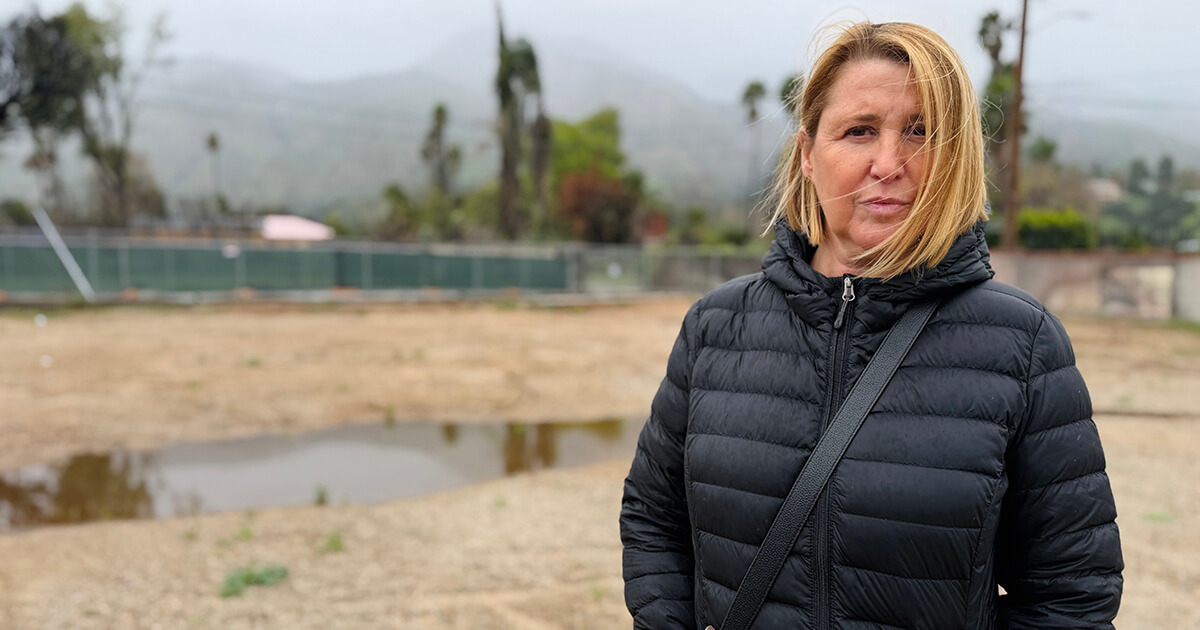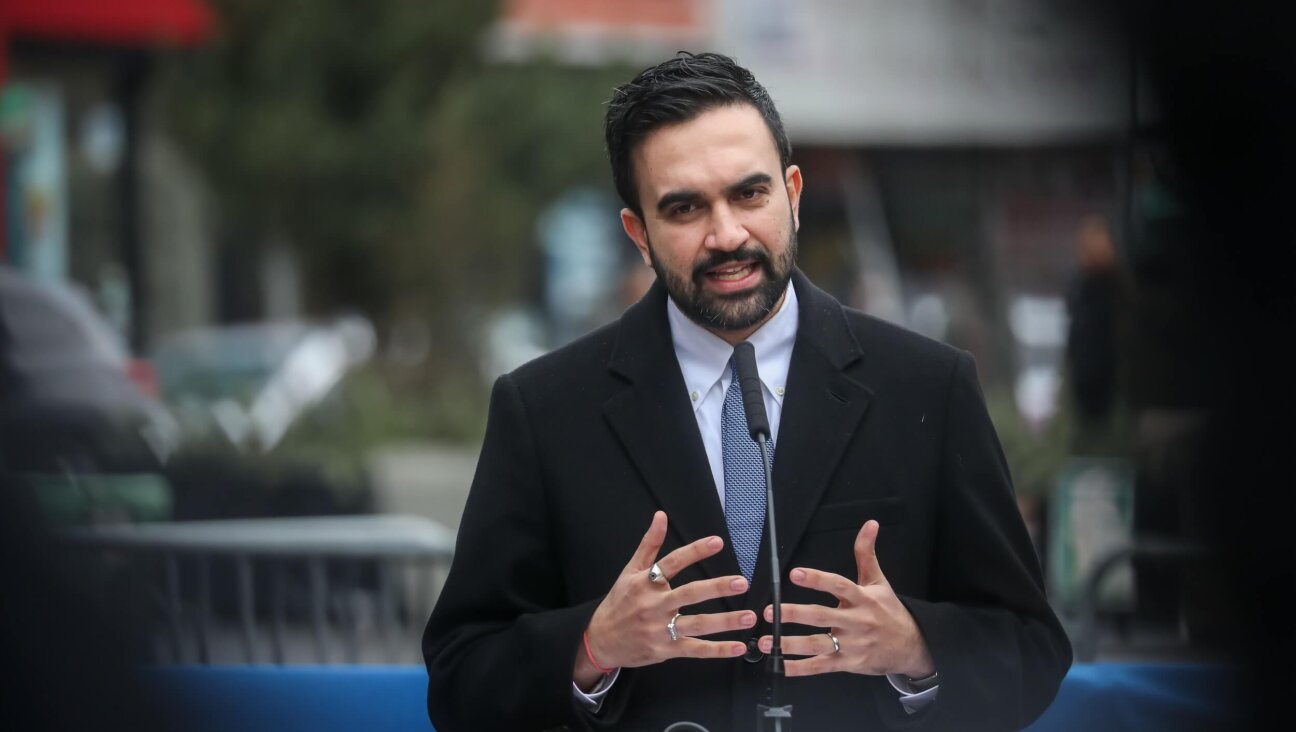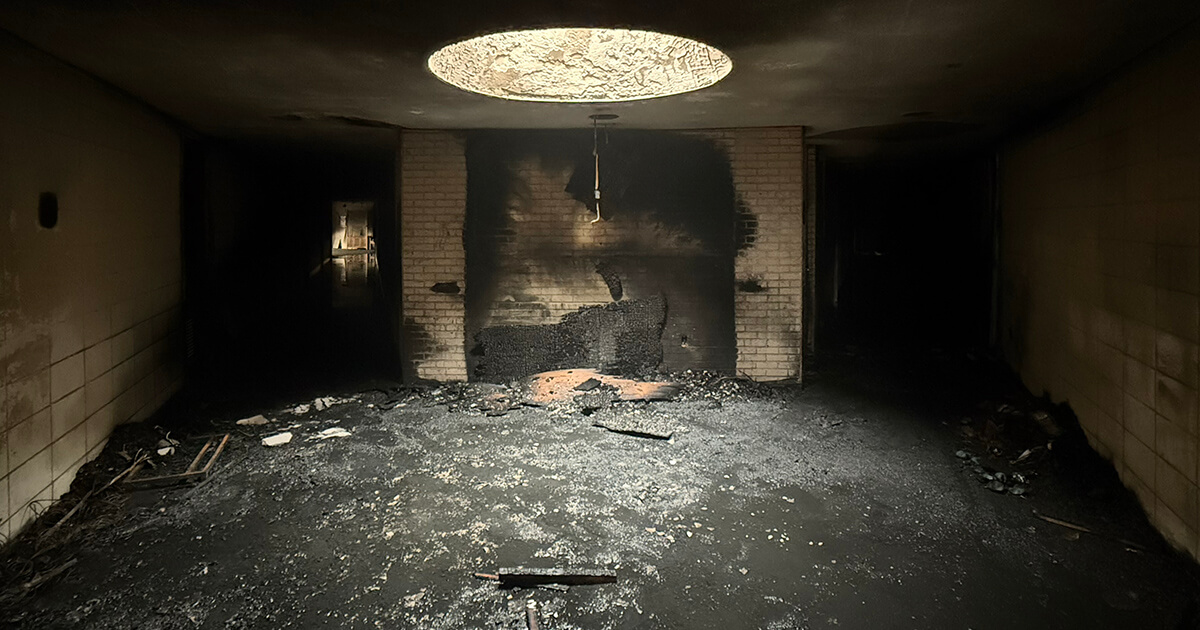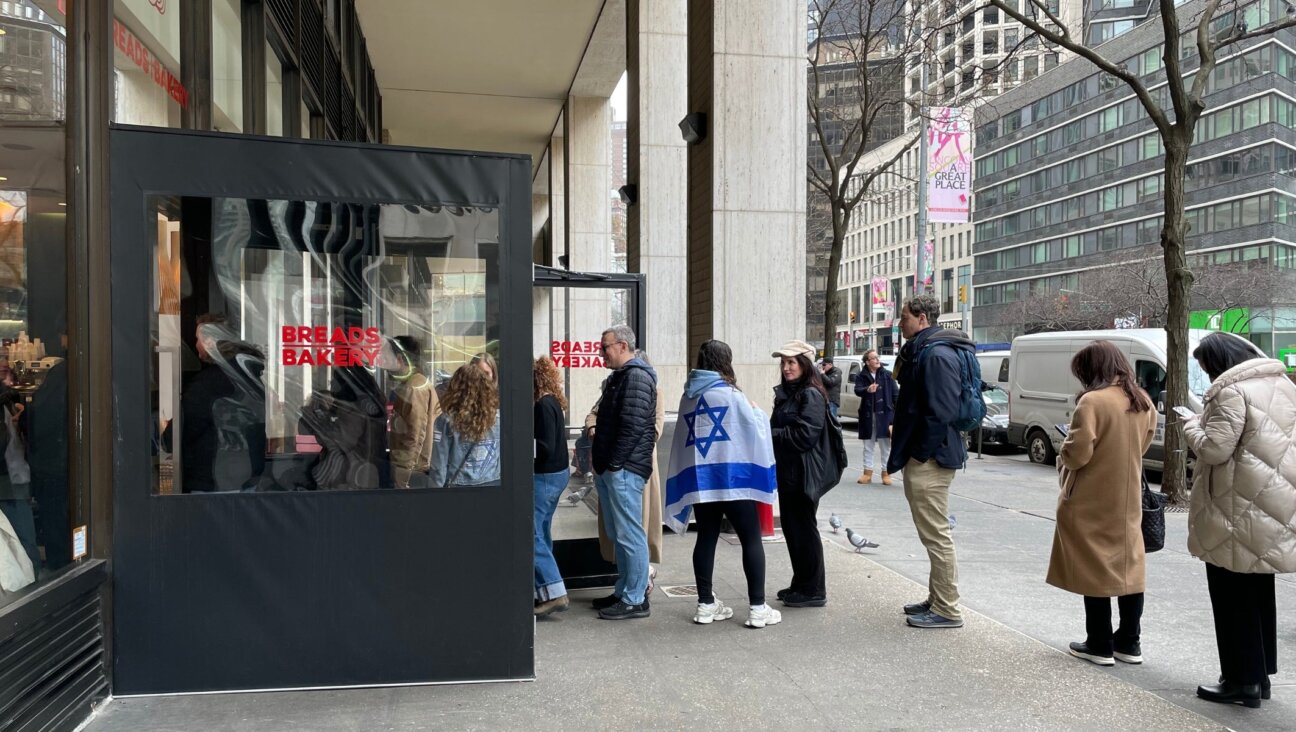Leonard Bernstein, Embracing Faith and Faithlessness at the Same Time
There are about 10 of us female tenors in the Collegiate Chorale, and I am one of the shortest. We wear tuxedos for the concert. And at this performance of Leonard Bernstein’s Mass, we are standing behind an enormous percussion section on the stage at Carnegie Hall.
The performance of the Mass, which took place last November, is the first in New York since 1974. The piece was commissioned by Jackie Kennedy upon the 1971 opening of the Kennedy Center and was extremely controversial at the time. Since then it has been viewed by most conductors as too risky and expensive. “Many thought it was dated,” said Robert Bass, conductor of the Collegiate Chorale. But with tensions high over the war with Iraq, and religious conflicts in the headlines, he thought that it might well be received differently. “I thought this piece needed to be heard in a new context.” Looking out at the crowd in Carnegie Hall as they rose for a standing ovation, it appeared that this postmodern Mass had finally found its time and place. We, the performers, had tapped into a yearning for a kind of religion that could embrace faith and faithlessness at once.
It is always a gamble where we will be placed on the stage: Will we be behind the trumpets, drowning out even the biggest sound we can emit? Or the bass violins, with their huge scrolls blocking our line of sight to Bob’s baton? Looking at the three-strong bass section, I think again about how basses, alongside the violins, always remind me of seeing a Great Dane and a tiny poodle together.
Five percussionists make their way among timpanies, snare drums, triangles and tambourines. There are xylophones, vibrophones, glockenspiels and gongs. There are bells, gourds and even a beer bottle. One of the instruments is a hollow wooden cone with ridges on the side, which is played with a metal object that looks like a hair pick. Something that looks like the whisk you’d have in your kitchen is used on the tambourine, spreading out the sound from the double rows of jingles.
The Mass is a grandiose production. It includes 180 Collegiate Chorale singers, 50 singers of the Brooklyn Youth Chorus, 18 Broadway singers, one boy soprano and the Celebrant — around 250 voices moving in style from classical choral to rock, blues and tunes reminiscent of Bernstein’s “Candide” and “West Side Story.” The singers are accompanied by the 70 members of the Orchestra of St. Lukes, making a total of 320 performers. “It wasn’t performed for so many years because of its sheer ambitiousness: You need three choruses, and three orchestras — a rock band, a woodwind and brass band and the traditional orchestra,” Bass said.
The pain of Vietnam and the era of sex, drugs and rock and roll can be heard as the piece intersperses the traditional “Gloria in excelsis deo” with the chant “Half of the people are stoned and the other half are waiting for the next election; half of the people are drowned and the other half are moving in the wrong direction” (lines attributed to Paul Simon).
The piece also cites the hypocrisy of traditional institutions: “Well I went to the holy man and I confessed…. It’s easy to shake the blame of any crime, then go out and do it one more time,” a blues singer says.
The Mass expresses the early 1970s poignantly — interrupting the traditional Catholic mass with irreverent commentaries about the very existence of God, like the passage: “I believe in God, but does God believe in me…. I’ll believe in 20 gods, if they’ll believe in me.”
And Bernstein makes sure to put reference to the original Jewish texts into the piece, during the “Sanctis” section, using the words “Kadosh adonai tsvaot” (“Holy is the lord of hosts”). Bernstein was, of course, a Jew and this is the quintessential Jewish mass, complete with commentaries inside the text and confronting God as part of prayer.
One of the percussionists, tall, thin, with white hair and beard and his face set in a pose of concentration, keeps dancing back and forth from a drum, triangle and cymbal station, directly in front of us, to the xylophone — at the right edge of the stage. Another plays the glockenspiel, waiting, counting for his entry, playing a few metallic notes and then quickly putting his arm over the instrument to keep it from vibrating any longer than necessary.
I’ve always wondered why people chose to be percussionists, sometimes waiting for 15 minutes or more to come in with two pings, or bongs or taps. Waiting poised with the mallet that looks like a stick with a ball of yarn at the end to hit the tam tam. But I realized this time how central they are to the ensemble: They are the accent, the character. They create and release the piece’s tension.
One such moment is the Mass’s climax — a crisis of faith — in a section called “How Easily Things Get Broken.” It warns both of the fragility of life lost in war and of the potential excesses of protest. We hear a crash from the percussion section that sounds like shattering glass.
The piece ends with a restatement of faith sung by everyone on stage: “Almighty father incline thine ear; bless us and all those who have gathered here…” As the Celebrant finishes with the words “the mass is ended, go in peace,” and I look out at the audience, I realize that we on stage have, together, created an experience for the crowd, more powerful than they’d find in most churches and synagogues.
Shari Cohen is a fellow in the conflict prevention program at Columbia University’s Center for International Conflict Resolution and is the author of “Politics Without a Past: The Absence of History in Postcommunist Nationalism” (Duke University Press, 1999).


